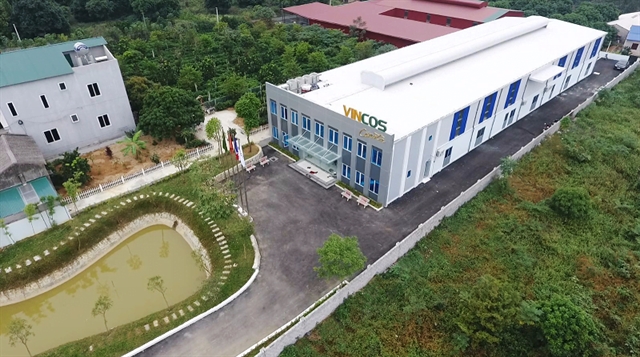 Life & Style
Life & Style

Women's nutrition needs keep changing as their bodies change in different stages of life.

|
| No Title |
by Dr Olga Sambolska*
Healthy habits are the best way to avoid disease, prolong life and help to live more happily. Eating balanced and healthy food is one of them. Beyond weight maintenance, the right food provides vitamins, minerals and nutrients that are important for growth, wellbeing and development.
While what works best for one woman may not always be the best choice for another, the important thing is to build a diet around one's vital nutritional needs. Whether you’re looking to improve your energy and mood, combat stress or PMS, boost fertility, enjoy a healthy pregnancy, or ease the symptoms of menopause, these nutrition tips can help you stay healthy, active, and vibrant throughout an ever-changing life.
Man and woman have physiological and metabolic differences. While women tend to need fewer calories than men, our requirements for certain vitamins and minerals are much higher. Hormonal changes associated with menstruation, child-bearing, and menopause mean that women have a higher risk of anaemia, weakened bones, and osteoporosis, requiring a higher intake of nutrients such as iron, calcium, magnesium, vitamin D, and vitamin B9 (folate).
But women's nutrition needs keep changing as their bodies change at different stages of life.
Girls between eight to 18 years old need more calcium and vitamin D to build strong bones. Girls need 1,300mg of calcium and 600IUs of vitamin D every day.
Young adult women need more calories than they were younger, to support their developing bodies. After 25 years, a woman's resting metabolism goes down and to maintain a healthy weight, they need to gradually reduce their calories and increase their physical activity.
During pregnancy, women need more of certain nutrients (protein, calcium, iron, folic acid) than usual to support the baby's development. During breastfeeding, women are required to eat healthy foods and drink more water (about 13 cups a day).
Among other things, we need calcium to build healthy bones and teeth, keep them strong as we age, regulate the heart’s rhythm, and ensure the nervous system functions properly. Calcium deficiency can lead to, or exacerbate, mood problems such as irritability, anxiety, depression, and sleep difficulties. If we don’t get enough calcium from our diet, our body will take calcium from our bones to ensure normal cell function, which can lead to weakened bones or osteoporosis. Women are at a greater risk than men of developing osteoporosis, so it’s important to get plenty of calcium, in combination with magnesium and vitamin D, to support bone health.
Calcium: For adult women aged 19-50 recommended daily allowance is 1,000mg per day. For women over 50, the recommended daily allowance is 1,200mg per day. Good sources of calcium include dairy products, leafy green vegetables, certain fish, grains, tofu, cabbage, and summer squash. Your body cannot take more than 500mg at any one time and there’s no benefit to exceeding the recommended daily amount.
Magnesium: Magnesium increases calcium absorption from the blood into the bone. In fact, your body can’t utilise calcium without it. The recommended daily dose of magnesium is 320 to 420mg. Good sources include leafy green vegetables, summer squash, broccoli, halibut, cucumber, green beans, celery, and a variety of seeds.
Vitamin D: Vitamin D is also crucial to the proper metabolism of calcium. Aim for 600IU (international units) daily. We can get Vitamin D from about half an hour of direct sunlight, and from foods such as salmon, shrimp, vitamin-D fortified milk, cod, and eggs.
Iron: Iron helps to create the haemoglobin that carries oxygen in your blood. It’s also important to maintain healthy skin, hair, and nails. Due to the amount of blood lost during menstruation, women of childbearing age need more than twice the amount of iron that men do - even more during pregnancy and breastfeeding. However, many of us aren’t getting nearly enough iron in our diets, making iron deficiency anaemia the most common deficiency in women.
Folate or vitamin B9 (also known as folic acid when used in fortified foods or taken as a supplement) This is another nutrient that many women don’t get enough of in their diets. Folate can greatly reduce the chance of neurological birth defects when taken before conception and during the first few weeks of pregnancy. Folate can also lower a woman’s risk for heart disease and certain types of cancer, so even if you’re not planning on getting pregnant (and many pregnancies are unplanned), it’s an essential nutrient for every woman of childbearing age. In later life, folate can help our body manufacture estrogen during menopause.
Not getting enough folate in a diet can also impact our mood, leaving us feeling irritable and fatigued, affecting concentration, and making us more susceptible to depression and headaches. Good sources include leafy green vegetables, fruit and fruit juice, nuts, beans and peas. Folic acid is also added to enrich many grain-based products such as cereals, bread, and pasta.
Eating well is only one piece of the healthy lifestyle puzzle, but let's start with that! — Family Medical Practice
*Dr Olga Sambolska graduated from the Lviv National Medical University in 1996 and commenced her medical career at the Volyn Regional Maternity Hospital, Ukraine. Since 1998 she has been a registered Obstetric and Gynaecology doctor providing care to women with gynaecological health matters as well as managing low-risk and complex obstetric cases throughout pregnancy, labour and the postpartum period. Her main focus has been intrapartum care (during labour) and she is competent in all types of delivery: vaginal, instrumental and operative (Caesarean Section).
Family Medical Practice was the first foreign-owned primary healthcare provider in Việt Nam, and has consistently remained at the forefront of international-standard medicine since 1995. It offers extensive healthcare and emergency medical services nationwide to Vietnamese, expatriate and corporate customers.
For more advice on any medical topics, visit Family Medical Practice Hanoi at: 298 I Kim Mã, Ba Đình. Tel: (024) 3843 0748. E: hanoi@vietnammedicalpractice.com.
FMP’s downtown Hồ Chí Minh City location is: Diamond Plaza, 34 Lê Duẩn, District 1; 95 Thảo Điền, District 2. Tel: (028) 38227848. E: hcmc@vietnammedicalpractice.com
FMP Đà Nẵng is located at 96-98 Nguyễn Văn Linh, Hải Châu District, Đà Nẵng. Tel: (0236) 3582 699. E: danang@vietnammedicalpractice.com.




